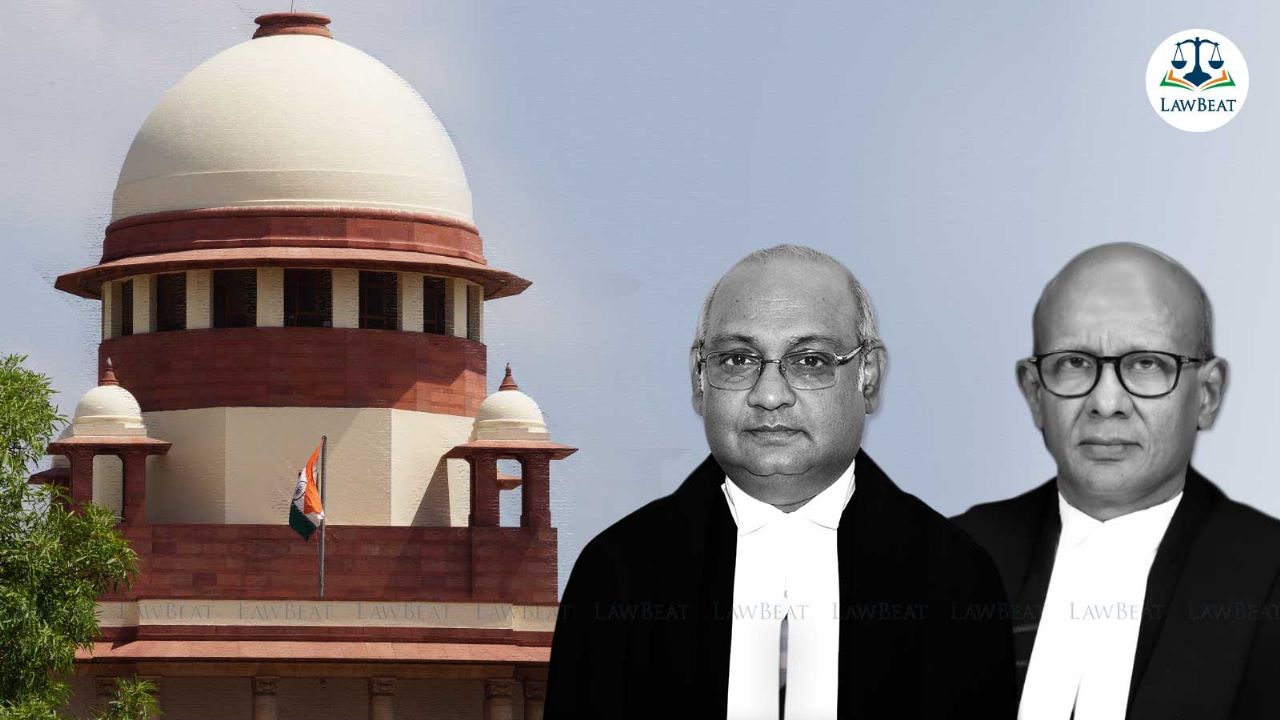Cheque bounce cases can be transferred from one state to another: SC

"...notwithstanding the non obstante clause in Section 142(1) of the Act of 1881, the power of this Court to transfer criminal cases under Section 406 Cr.P.C. remains intact in relation to offences under Section 138 of the Act of 1881, if it is found expedient for the ends of justice," the Top Court has held.
Court has the power to transfer criminal cases as per Section 406 CrPC in relation to offences under Section 138 of the Negotiable Instruments Act of 1881, if it is found expedient for the ends of justice, the Supreme Court has held.
These observations came to be made by a division bench of Justices Dinesh Maheshwari and Sanjay Kumar while allowing transfer petitions filed under Section 406 CrPC.
One Yogesh Upadhyay had approached the Top Court seeking transfer of two cases pending before Nagpur Court to a Dwarka Court.
All together six complaint cases were filed against Upadhyay by Atlanta Limited, the respondent, under Sections 138 and 142 of the Negotiable Instruments Act, 1881.
It was Upadhyay's case that as all the cheques relate to the same transaction, it would be proper and appropriate that the cases pertaining to their dishonour are tried and decided together.
The respondent company contended before the Supreme Court that Section 142 of the Act of 1881 would override Section 406 CrPC, in view of the non obstante clause therein.
Court noted that the newly inserted (Amendment of 2015) Section 142(2) of NI Act, states that the offence under Section 138 shall be inquired into and tried only by a Court within whose local jurisdiction - (a) if the cheque is delivered for collection through an account, the branch of the bank where the payee or holder in due course, as the case may be, maintains the account, is situated.
"Section 142(2) now makes it clear that the jurisdiction to try such an offence would vest only in 7 the Court within whose jurisdiction the branch of the Bank where the cheque was delivered for collection, through the account of the payee or holder in due course, is situated. The newly inserted Section 142-A further clarifies this position by validating the transfer of pending cases to the Courts conferred with such jurisdiction after the amendment...", the bench noted.
On the contention that the non obstante clause in Section 142(1) of the Act of 1881 would override Section 406 Cr.P.C., Court said,
"...the non obstante clause was there in the original Section 142 itself and was not introduced by way of the amendments in the year 2015, along with Section 142(2). The said clause merely has reference to the manner in which cognizance is to be taken in offences under Section 138 of the Act of 1881, as a departure has to be made from the usual procedure inasmuch as prosecution for the said offence stands postponed despite commission of the offence being complete upon dishonour of the cheque and it must necessarily be in terms of the procedure prescribed. The clause, therefore, has to be read and understood in the context and for the purpose it is used and it does not lend itself to the interpretation that Section 406 Cr.P.C. would stand excluded vis-à-vis offences under Section 138 of the Act of 1881. The power of this Court to transfer pending criminal proceedings under Section 406 Cr.P.C. does not stand abrogated thereby in respect of offences under Section 138 of the Act of 1881. It may be noted that this Court exercised power under Section 406 Cr.P.C. in relation to offences under Section 138 of the Act of 1881 even during the time the original Section 142 held the field."
Case Title: YOGESH UPADHYAY AND ANR. vs. ATLANTA LIMITED
